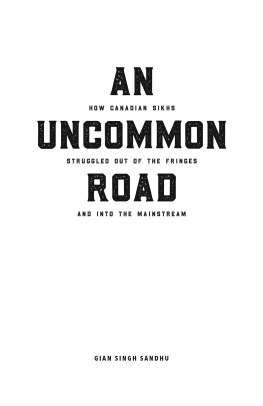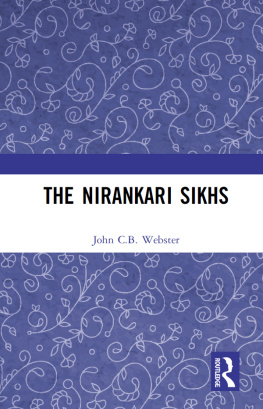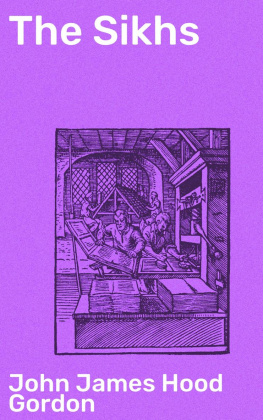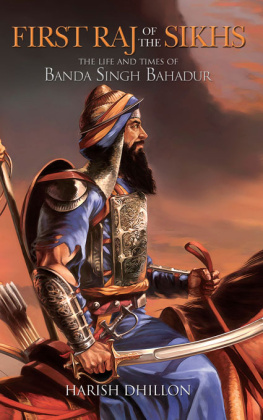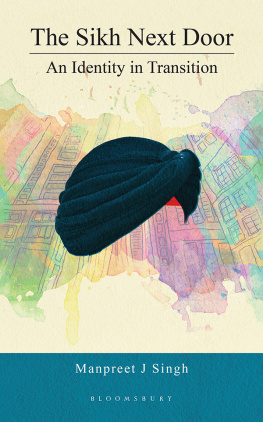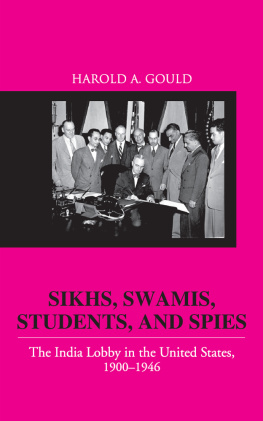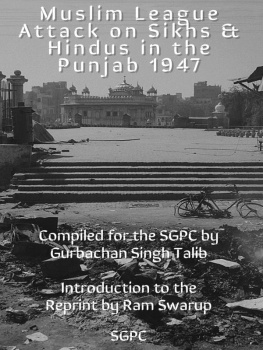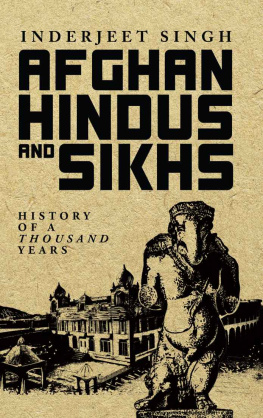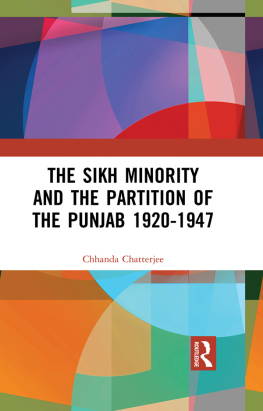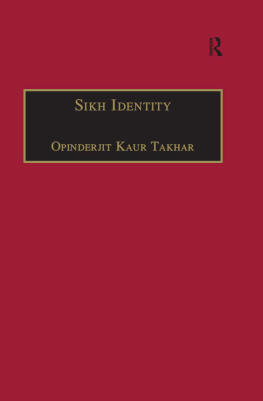Gian Sandhu - An Uncommon Road: How Canadian Sikhs Struggled Out of the Fringes and Into the Mainstream
Here you can read online Gian Sandhu - An Uncommon Road: How Canadian Sikhs Struggled Out of the Fringes and Into the Mainstream full text of the book (entire story) in english for free. Download pdf and epub, get meaning, cover and reviews about this ebook. year: 2018, publisher: Gian Sandhu, genre: Politics. Description of the work, (preface) as well as reviews are available. Best literature library LitArk.com created for fans of good reading and offers a wide selection of genres:
Romance novel
Science fiction
Adventure
Detective
Science
History
Home and family
Prose
Art
Politics
Computer
Non-fiction
Religion
Business
Children
Humor
Choose a favorite category and find really read worthwhile books. Enjoy immersion in the world of imagination, feel the emotions of the characters or learn something new for yourself, make an fascinating discovery.
- Book:An Uncommon Road: How Canadian Sikhs Struggled Out of the Fringes and Into the Mainstream
- Author:
- Publisher:Gian Sandhu
- Genre:
- Year:2018
- Rating:5 / 5
- Favourites:Add to favourites
- Your mark:
An Uncommon Road: How Canadian Sikhs Struggled Out of the Fringes and Into the Mainstream: summary, description and annotation
We offer to read an annotation, description, summary or preface (depends on what the author of the book "An Uncommon Road: How Canadian Sikhs Struggled Out of the Fringes and Into the Mainstream" wrote himself). If you haven't found the necessary information about the book — write in the comments, we will try to find it.
A riveting, incisive account of some of the most complex politics in modern Canada, from the founder of the World Sikh Organization of Canada.
Widely publicized atrocities in the mid-80s came to define Canadas Sikhs: the 1984 assault on the Golden Temple by the Indian military, the assassination of Indira Gandhi and subsequent pogroms that left over 3,000 Sikhs dead in Delhi alone, and the bombing of Air India Flight 182 one year later. In An Uncommon Road Gian Singh Sandhu traces the evolution of Sikhs place in Canada: from Sikhs dealing with the assumption of blame for the Air India bombing; to combatting incendiary false news stories; to overcoming rampant disdain by governments in India and at home. Sharing never-before-heard stories, Sandhu offers a remarkable view of some of the most complex modern politics Canadian citizens have ever faced.
But struggle can lead to liberation. Over three decades, the World Sikh Organization fought for landmark human rights legislation, from the rights of Sikhs in the RCMP to wear turbans, to campaigning on behalf of religious freedoms for others, and championing the acceptance of gay marriage.
An Uncommon Road is the celebration of an extraordinarily resilient people and a moving roadmap for how individuals, and a community, can fight for their own social justice andin doing sogain justice for all.
* * * * * * *
Gian Singh Sandhu became the founding president of the World Sikh Organization of Canada in 1984 and remains active in that group today. Having emigrated from India in 1970 to Williams Lake, B.C., he is also a proud Canadian and was recognized in 2002 with the Order of British Columbia. He lives in Surrey, B.C.
* * * * * * *
An Uncommon Road provides the first credible compilation of facts, evidence, and missed opportunities pertaining to and affecting Canadian Sikhs.
David Kilgour, human rights activist and Nobel Peace Prize nominee
Gian Singh Sandhu takes us on a journey rarely articulated so passionately. By weaving his personal life into the largest story of Sikhs in Canada, An Uncommon Road encapsulates his entire being. Its an engrossing read.
Kiranjot Kaur, scholar and former General Secretary of the Shiromani Gurdwara Parbandhak Committee
An Uncommon Road is a classic treatise on a communitys attempts at diplomacy, statesmanship, and advocacy. Although told in first person, it is neither parochial nor self-centered, but an extremely well written account of the Canadian Sikh communitys movement toward a broad humanistic and secular outlook.
Jagmohan Singh, editor, World Sikh News
An Uncommon Road is a work of nonfiction that reads like a novel and presents a truly unique perspective. Its a valuable resource for the casual reader and the scholar alike. I expect it will be included in any array of university courses. Moreover, its an entertaining read!
Corey D. Steinberg, lawyer and author
Gian Sandhu: author's other books
Who wrote An Uncommon Road: How Canadian Sikhs Struggled Out of the Fringes and Into the Mainstream? Find out the surname, the name of the author of the book and a list of all author's works by series.

